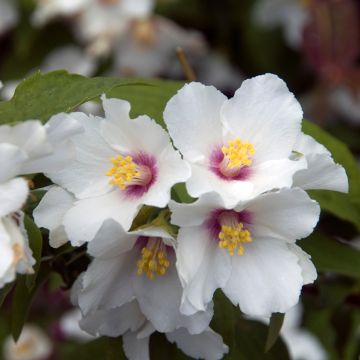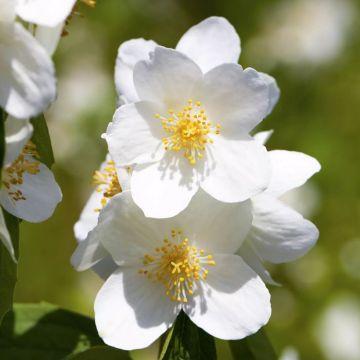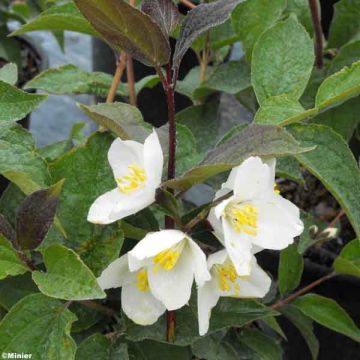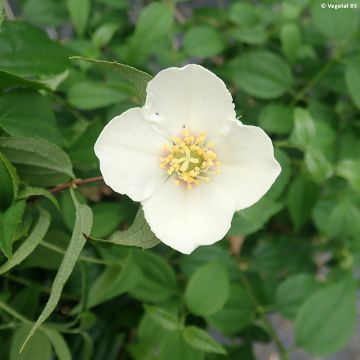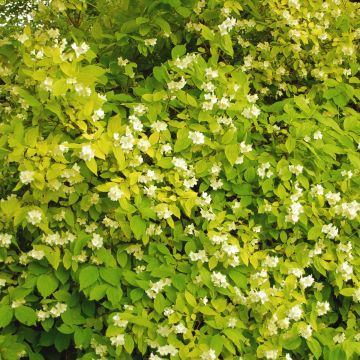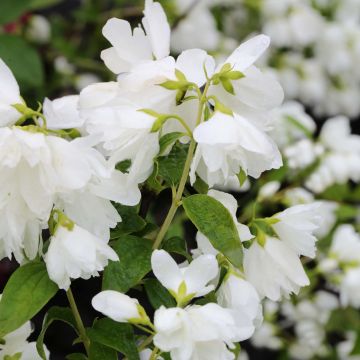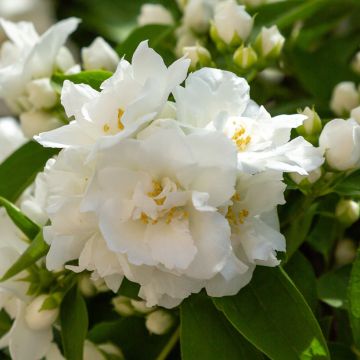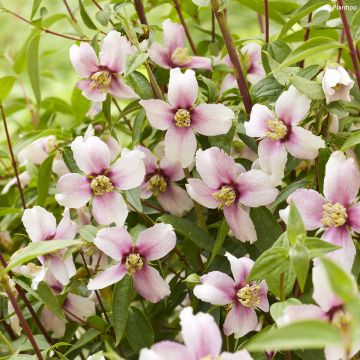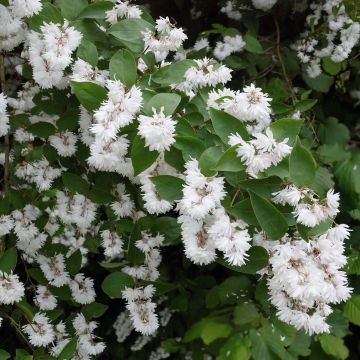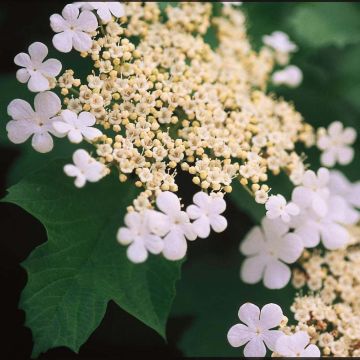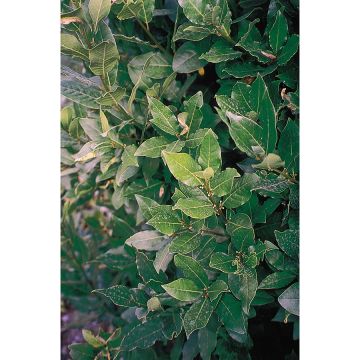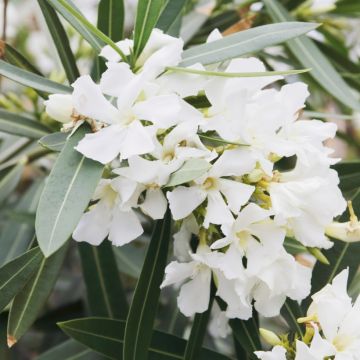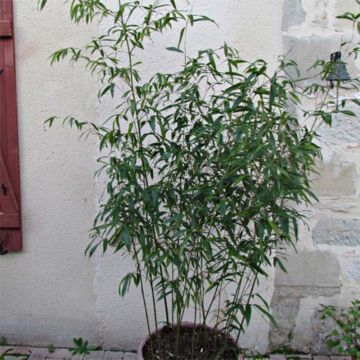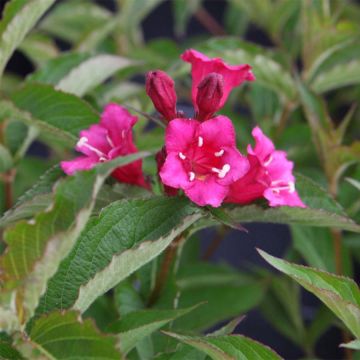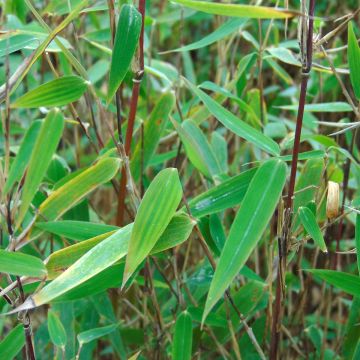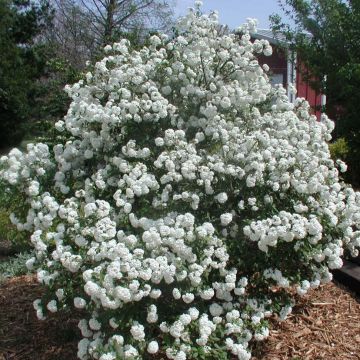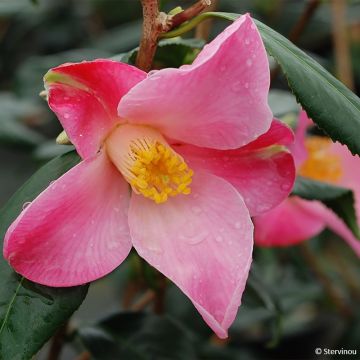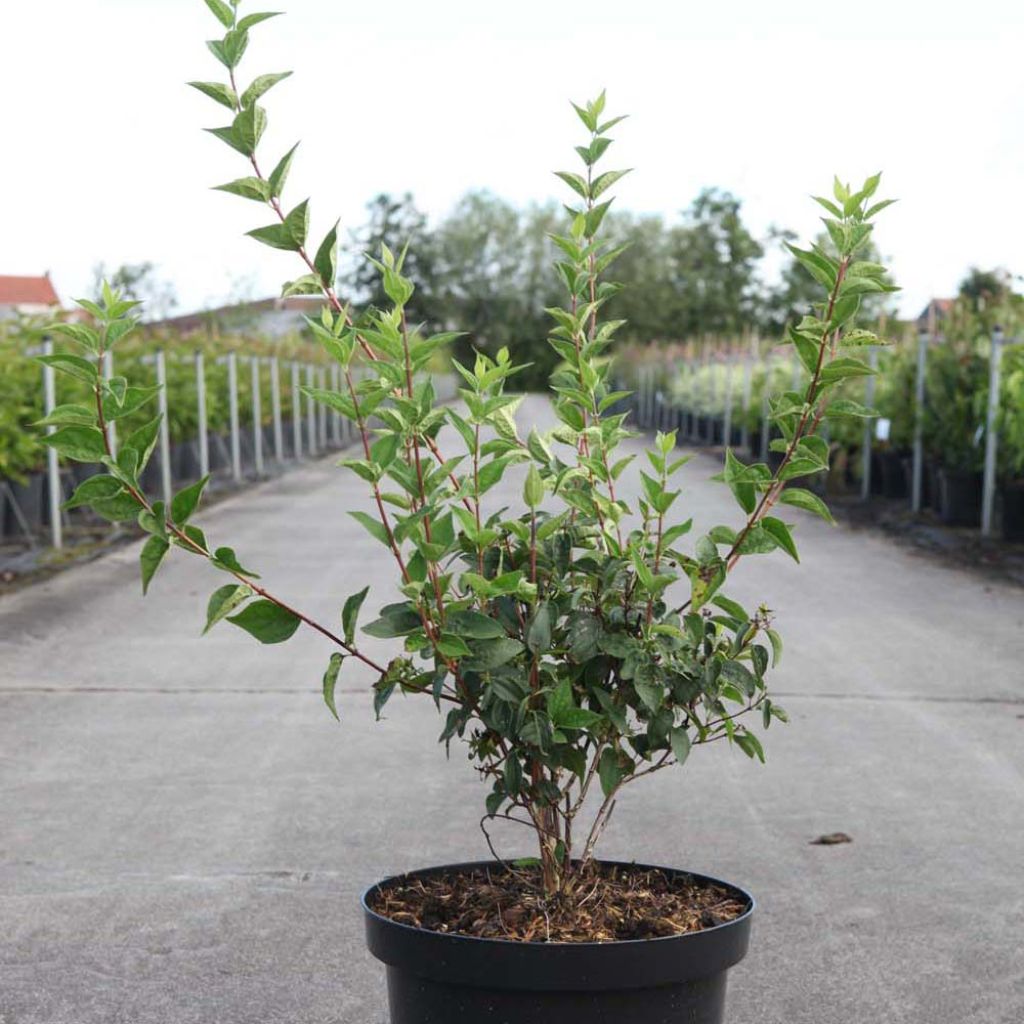

Philadelphus Dame Blanche - Mock Orange
Philadelphus Dame Blanche - Mock Orange
Philadelphus Dame Blanche
Mock Orange
Good recovery
Stéphane A., 11/04/2023
This item cannot be shipped to the selected country
Delivery charge from €5.90
Delivery charge from €5.90
More information
Schedule delivery date,
and select date in basket
This plant carries a 24 months recovery warranty
More information
We guarantee the quality of our plants for a full growing cycle, and will replace at our expense any plant that fails to recover under normal climatic and planting conditions.
From €5.90 for pickup delivery and €6.90 for home delivery
Express home delivery from €8.90.
From €5.90 for pickup delivery and €6.90 for home delivery
Express home delivery from €8.90.

Does this plant fit my garden?
Set up your Plantfit profile →
Description
The Philadelphus 'Dame Blanche' is an old variety of Mock Orange that stands out for its small growth, its gracefully arched branches, its very bushy vegetation and its beautiful floribundus. The bush almost disappears in June-July under a profusion of small, single or double white flowers, gathered in small pleasantly scented clusters. Like all mock oranges, 'Dame Blanche' is a robust, deciduous, hardy bush, very easy to grow in ordinary soil in sun or semi-shade. Place it in a cottage-style bed or a small free hedge, along a path, under a window, or even in a large pot on the terrace!
Philadelphi are all deciduous bushes native to the temperate regions of the Northern Hemisphere, particularly the Far East and North America. The some 60 species that make up this genus were cross-bred, first in France, then in the United States, the scent of the flowers sometimes forgotten along the way in favour of more spectacular double blooms... Not demanding, mock oranges are sometimes a little slow to settle in. They will need regular pruning after flowering, removing the oldest stems so that they maintain a beautiful habit and remain very floriferous.
The mock orange Dame Blanche is a horticultural hybrid obtained by Victor Lemoine (1823 -1911), a genius hybridiser from Nancy, France, also known for his lilacs, clematis and shrub peonies, all creations that still exist, many of which remain unrivalled.
'Dame Blanche' is a bushy, stocky bush, with a bushy and arched habit reaching on average 1.30 m (4 ft 4 in) in all directions at maturity, with a rather slow growth for a mock orange, in the order of 15 to 25 cm (5.9 to 9.8 in) per year. Some of the small flowers on a same bush can be single and others double. 2.5 cm (1 in) wide, they bloom in June-July for about a month. They are rarely solitary, most often gathered in small clusters of 2 to 5 charming flowers. They are particularly numerous and deliver a medium intensity scent reminiscent of orange blossom. The small, deciduous leaves are dark green, slightly dentate, 2 to 3 cm (0.8 to 1.2 in) long. They are entire, arranged oppositely on the branches and characterised by their ovate shape, their pointed extremity and the lighter longitudinal veins running through the lamina.
Adapted to all types of gardens and very easy to grow, this Dame Blanche is ideal for beginner gardeners. It likes a sunny or semi-shaded location and is content with ordinary soil, even limestone. Of modest stature, very bushy, 'Dame Blanche' will be perfect in the background of mixed-borders, in combination with other bushes, at the forefront of a cottage-style flowering hedge, or even grown in a pot on the terrace or balcony. Consider planting it near the house, terrace,or paths to make the most of its intense fragrance. Planted in semi-shade, it will light up the garden with the whiteness of its flowers. Its flowering period being quite brief, consider combining it with bushes with earlier or later flowering (Deutzia, Buddleia, Forsythia, Caryopteris, lilac, False-aralia…) Allow a small clematis to climb in its branches, surround it with a Fairy rosebush (pink, red or white), which will give a wild and charming look to your display. Its white flowering also allows beautiful combinations with blue flowering perennials (or white, for the beauty of a virginal garden).
Report an error about the product description
Philadelphus Dame Blanche - Mock Orange in pictures
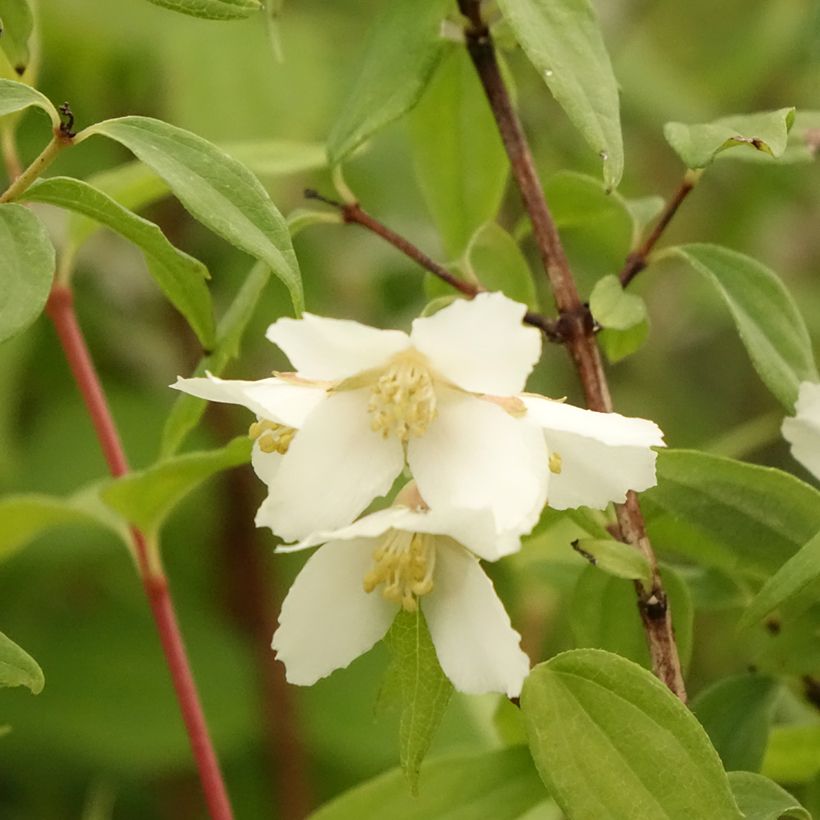

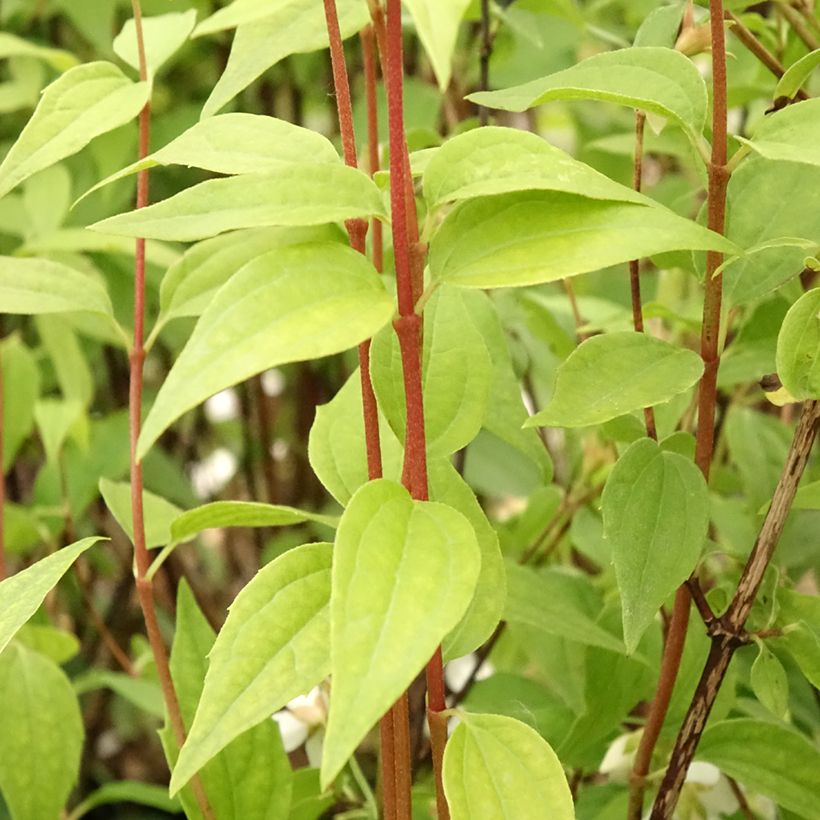

Plant habit
Flowering
Foliage
Botanical data
Philadelphus
Dame Blanche
Hydrangeaceae
Mock Orange
Cultivar or hybrid
Other Philadelphus - Mock Orange
Planting and care
Very easy to cultivate, the Philadelphus Dame Blanche requires very little maintenance and is very accommodating, well adapted to all gardens and ideal for beginner gardeners. Although ordinary, poor, even chalky, not too dry, cool soil will suit it, it will prefer cool, well-drained, and humus-rich soil. Very hardy, it can withstand minus temperatures down to -20°C (-4 °F). Planting is done in early spring or autumn, preferably in sun or half-shade. Excessively hot exposures should be avoided in dry and hot climates. Flowering on the shoots of the previous year, the Philadelphus must be pruned after flowering, in July-August, by shortening the branches that have flowered by a third of their length. More severe pruning can be done every 2 to 3 years in order to keep it compact and producing abundant blooms. It will suffice to this end to boldly cut the old wood and fairly low branches near the base of the plant to encourage it to ramify from the base. Although this bush is resistant, it can still be prone to powdery mildew and black aphids.
Planting period
Intended location
Care
-
, onOrder confirmed
Reply from on Promesse de fleurs
Hedge shrubs
Haven't found what you were looking for?
Hardiness is the lowest winter temperature a plant can endure without suffering serious damage or even dying. However, hardiness is affected by location (a sheltered area, such as a patio), protection (winter cover) and soil type (hardiness is improved by well-drained soil).

Photo Sharing Terms & Conditions
In order to encourage gardeners to interact and share their experiences, Promesse de fleurs offers various media enabling content to be uploaded onto its Site - in particular via the ‘Photo sharing’ module.
The User agrees to refrain from:
- Posting any content that is illegal, prejudicial, insulting, racist, inciteful to hatred, revisionist, contrary to public decency, that infringes on privacy or on the privacy rights of third parties, in particular the publicity rights of persons and goods, intellectual property rights, or the right to privacy.
- Submitting content on behalf of a third party;
- Impersonate the identity of a third party and/or publish any personal information about a third party;
In general, the User undertakes to refrain from any unethical behaviour.
All Content (in particular text, comments, files, images, photos, videos, creative works, etc.), which may be subject to property or intellectual property rights, image or other private rights, shall remain the property of the User, subject to the limited rights granted by the terms of the licence granted by Promesse de fleurs as stated below. Users are at liberty to publish or not to publish such Content on the Site, notably via the ‘Photo Sharing’ facility, and accept that this Content shall be made public and freely accessible, notably on the Internet.
Users further acknowledge, undertake to have ,and guarantee that they hold all necessary rights and permissions to publish such material on the Site, in particular with regard to the legislation in force pertaining to any privacy, property, intellectual property, image, or contractual rights, or rights of any other nature. By publishing such Content on the Site, Users acknowledge accepting full liability as publishers of the Content within the meaning of the law, and grant Promesse de fleurs, free of charge, an inclusive, worldwide licence for the said Content for the entire duration of its publication, including all reproduction, representation, up/downloading, displaying, performing, transmission, and storage rights.
Users also grant permission for their name to be linked to the Content and accept that this link may not always be made available.
By engaging in posting material, Users consent to their Content becoming automatically accessible on the Internet, in particular on other sites and/or blogs and/or web pages of the Promesse de fleurs site, including in particular social pages and the Promesse de fleurs catalogue.
Users may secure the removal of entrusted content free of charge by issuing a simple request via our contact form.
The flowering period indicated on our website applies to countries and regions located in USDA zone 8 (France, the United Kingdom, Ireland, the Netherlands, etc.)
It will vary according to where you live:
- In zones 9 to 10 (Italy, Spain, Greece, etc.), flowering will occur about 2 to 4 weeks earlier.
- In zones 6 to 7 (Germany, Poland, Slovenia, and lower mountainous regions), flowering will be delayed by 2 to 3 weeks.
- In zone 5 (Central Europe, Scandinavia), blooming will be delayed by 3 to 5 weeks.
In temperate climates, pruning of spring-flowering shrubs (forsythia, spireas, etc.) should be done just after flowering.
Pruning of summer-flowering shrubs (Indian Lilac, Perovskia, etc.) can be done in winter or spring.
In cold regions as well as with frost-sensitive plants, avoid pruning too early when severe frosts may still occur.
The planting period indicated on our website applies to countries and regions located in USDA zone 8 (France, United Kingdom, Ireland, Netherlands).
It will vary according to where you live:
- In Mediterranean zones (Marseille, Madrid, Milan, etc.), autumn and winter are the best planting periods.
- In continental zones (Strasbourg, Munich, Vienna, etc.), delay planting by 2 to 3 weeks in spring and bring it forward by 2 to 4 weeks in autumn.
- In mountainous regions (the Alps, Pyrenees, Carpathians, etc.), it is best to plant in late spring (May-June) or late summer (August-September).
The harvesting period indicated on our website applies to countries and regions in USDA zone 8 (France, England, Ireland, the Netherlands).
In colder areas (Scandinavia, Poland, Austria...) fruit and vegetable harvests are likely to be delayed by 3-4 weeks.
In warmer areas (Italy, Spain, Greece, etc.), harvesting will probably take place earlier, depending on weather conditions.
The sowing periods indicated on our website apply to countries and regions within USDA Zone 8 (France, UK, Ireland, Netherlands).
In colder areas (Scandinavia, Poland, Austria...), delay any outdoor sowing by 3-4 weeks, or sow under glass.
In warmer climes (Italy, Spain, Greece, etc.), bring outdoor sowing forward by a few weeks.

































